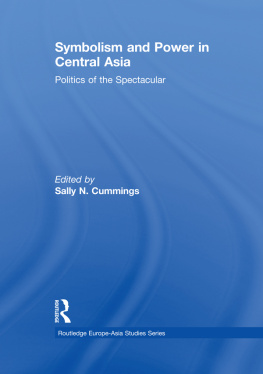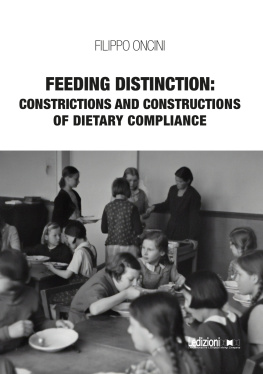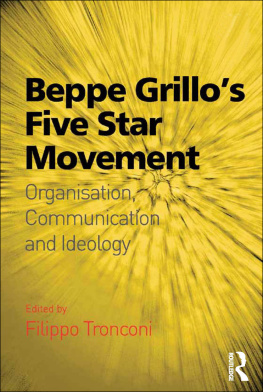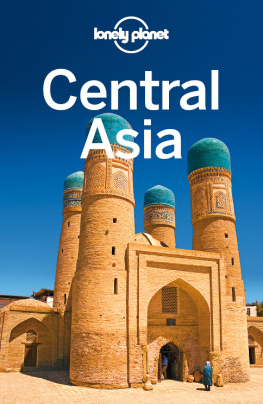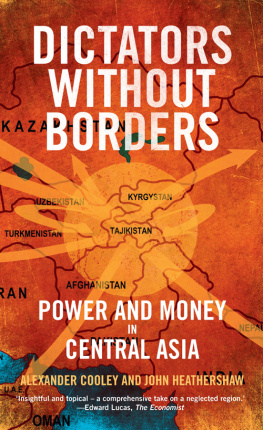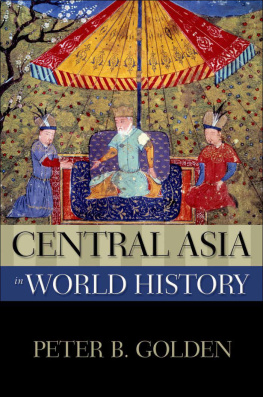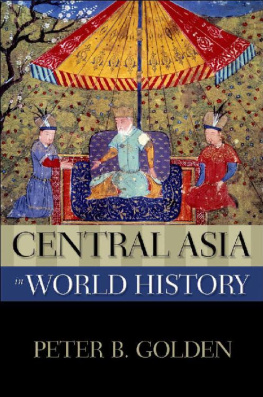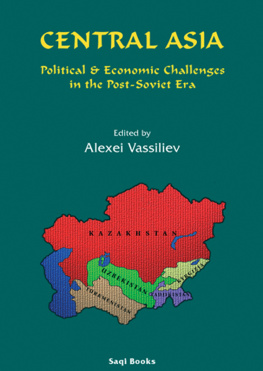Giaime Loi
Filippo Mengas book neatly captures the intricacies and complexities of politics over water shared across boundaries. The analysis on Central Asia is timely and updates our understanding on water demands, strategies, and aspirations of water use between the countries. The book delivers a persuasive and explicit examination of power dynamics at play in the Amu Darya and Syr Darya rivers.
Dr Naho Mirumachi, Lecturer in Geography, Kings College London, UK
In this insightful and compelling work, Filippo Menga gets to the heart of the nature of power dynamics which structure transboundary water issues in the Central Asian region. It is a thoughtful and considered text which contributes significantly to the general study of hydropolitics as well as Central Asian studies.
Dr Rico Isaacs, Reader in Politics, Oxford Brookes University, UK
Filippo Mengas book Power and Water in Central Asia, through the in-depth analysis of hydropolitics in this region of great strategic importance, brilliantly demonstrates how various forms of power are connective in the function of water-hegemony. The analytical tool Circle of Hydro-Hegemony offered by the book not only helps understand power dynamics of the last quarter of century in trans-boundary water relations in Central Asia, but it is an important contribution to future scientific research on hydropolitics in other regions of the world. The three case studies on the hydropolitics of Tajikistan, Kyrgyzstan, and Uzbekistan are a convincing proof that national solutions enforced by a hydro-hegemon and rejection of regional cooperation can prove to be unsustainable and conflict-prone on the long run. Filippo Mengas innovative analysis of water politics in Central Asia is a stark reminder of the responsibility of policy makers in the twenty-first century when growing strain on water resources and irregular weather patterns caused by climate change greatly complicate water management in international river basins, further increasing the inherent conflict potential.
Marton Krasznai, Scientific Director of the Central
Asia Research Center, Corvinus University of Budapest, Hungary
This book is a welcome contribution to the literature on Central Asia and to the study of transnational processes and relations. It connects innovative theorisation of hydropolitics in Central Asia with a thorough overview of interstate relations in the region during the past twenty-five years, and it will be of interest to a broad range of scholars and students interested on the post-Soviet space and on the politics of natural resources.
Dr Abel Polese, Senior Research Fellow, Dublin City University, Ireland
Power and Water in Central Asia
Water is an irreplaceable and transient resource, which crosses political boundaries in the form of rivers, lakes, and groundwater aquifers. The collapse of the Soviet Union in 1991 led to the birth of fifteen countries including the five Central Asian republics, Kazakhstan, Kyrgyzstan, Tajikistan, Turkmenistan, and Uzbekistan. When the Soviet Union ceased to exist, so did the centralised Soviet resource distribution system that managed the exchange and allocation of water, energy, and food supplies. A whole new set of international relations emerged, and the newly formed Central Asian governments had to redefine the policies related to the exchange and sharing of their natural resources.
This book analyses the role of state power in transboundary water relations. It provides an in-depth study of the evolution of interstate relations in Central Asia in the field of water from 1991 to 2015. Taking as a case study the planned construction of the Rogun and Kambarata dams in Tajikistan and Kyrgyzstan, the author examines various forms of overt and covert power shaping interstate relations and the way hegemonic and counter-hegemonic measures are put in place in an international river basin. He argues that the intimate correlation between the concepts of power and hegemony can offer key insights to the analysis and understanding of transboundary water relations. While the analytical focus is placed on state power, the book demonstrates that hegemonic and counter-hegemonic tactics represent the ways in which power is wielded and observed.
Offering fresh theoretical interpretations to the subjects of power and counter-hegemony in the Aral Sea basin, this book puts forward the original Circle of Hydro-Hegemony, an analytical framework in which the various forms of power are connective in the function of hegemony. It will be of interest to scholars in the field of water and environmental politics and Central Asian Studies.
Filippo Menga is a Lecturer in Human Geography at the University of Reading, UK, where he carries out interdisciplinary research exploring the interplay between humans and the environment. He has published articles in a wide range of academic journals, including Political Geography, Geoforum, Nationalities Papers, and Water Alternatives.
Routledge Advances in Central Asian Studies
5 Power, Networks and Violent Conflict in Central Asia
A Comparison of Tajikistan and Uzbekistan
Idil Tuner-Kilavuz
6 From Conflict to Autonomy in the Caucasus
The Soviet Union and the Making of Abkhazia, South Ossetia and Nagorno Karabakh
Arsne Saparov
7 Identity and Politics in Central Asia and the Caucasus
Edited by Murad Ismayilov and Mohammed Ayoob
8 Turkish-Azerbaijani Relations
One NationTwo States?
Edited by Murad Ismayilov and Norman A. Graham
9 US Policies in Central Asia
Democracy, Energy and the War on Terror
Ilya Levine
10 E-Government in Kazakhstan
A Case Study of Multidimensional Phenomena
Maxat Kassen
11 Uzbekistans Foreign Policy
The Struggle for Recognition and Self-Reliance under Karimov
Bernardo Teles Fazendeiro
12 Nation-building and Personality Cult in Turkmenistan
The Trkmenbay Phenomenon
Fabio De Leonardis
13 Power and Water in Central Asia
Filippo Menga
For a full list of titles please see www.routledge.com/Routledge-Advances-in-Central-Asian-Studies/book-series/RACAS.
First published 2018
by Routledge
2 Park Square, Milton Park, Abingdon, Oxon OX14 4RN
and by Routledge
711 Third Avenue, New York, NY 10017
Routledge is an imprint of the Taylor & Francis Group, an informa business
2018 Filippo Menga
The right of Filippo Menga to be identified as author of this work has been asserted by him in accordance with sections 77 and 78 of the Copyright, Designs and Patents Act 1988.
All rights reserved. No part of this book may be reprinted or reproduced or utilised in any form or by any electronic, mechanical, or other means, now known or hereafter invented, including photocopying and recording, or in any information storage or retrieval system, without permission in writing from the publishers.
Trademark notice: Product or corporate names may be trademarks or registered trademarks, and are used only for identification and explanation without intent to infringe.





